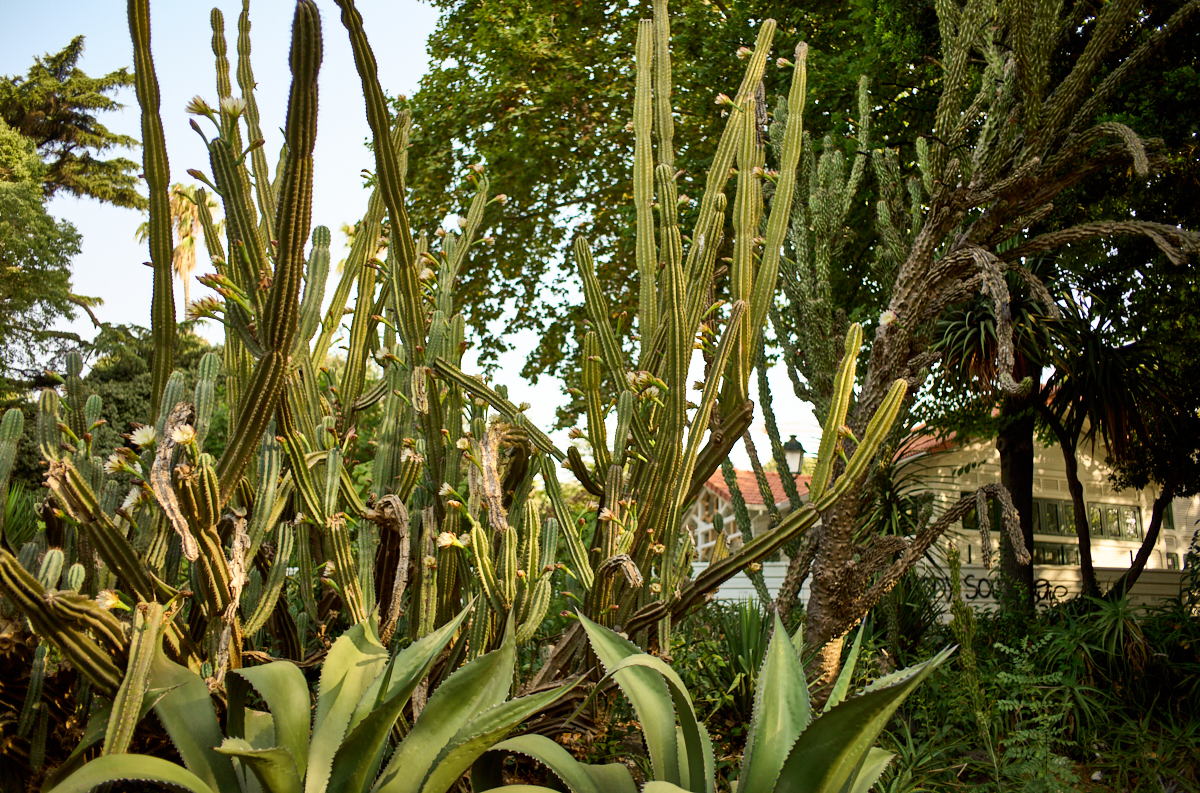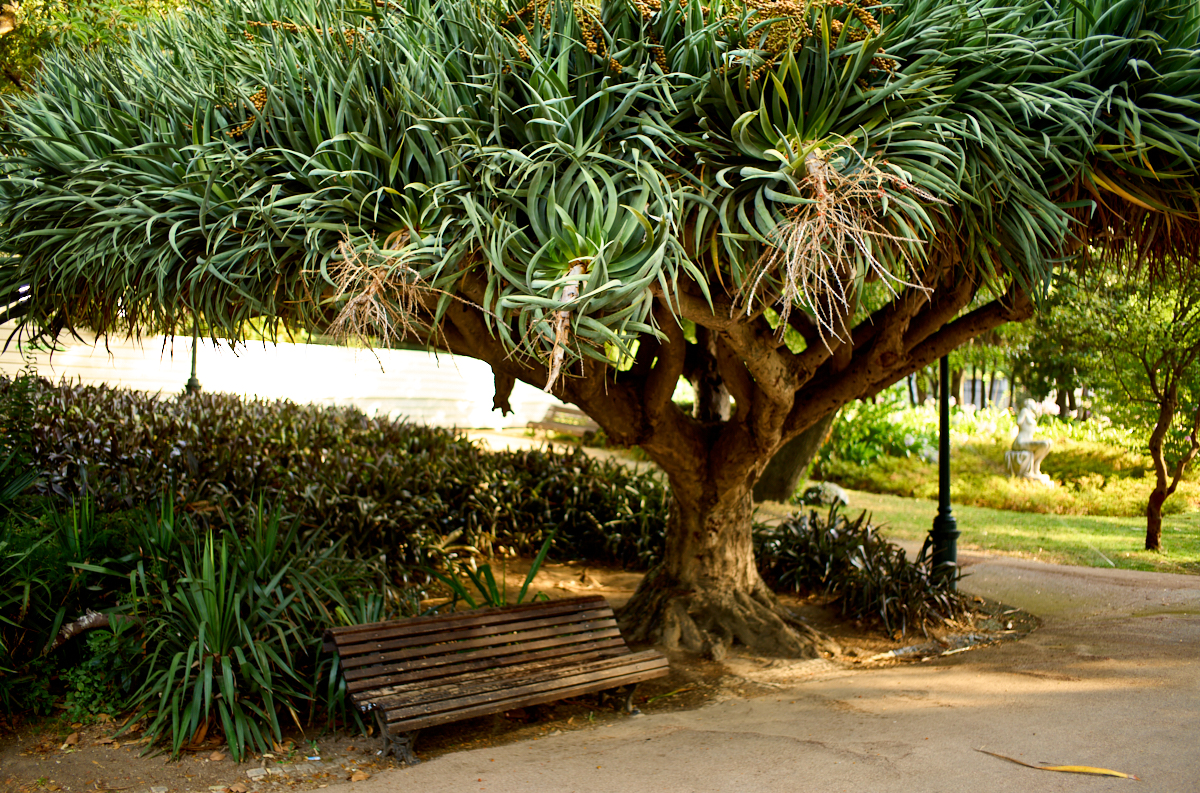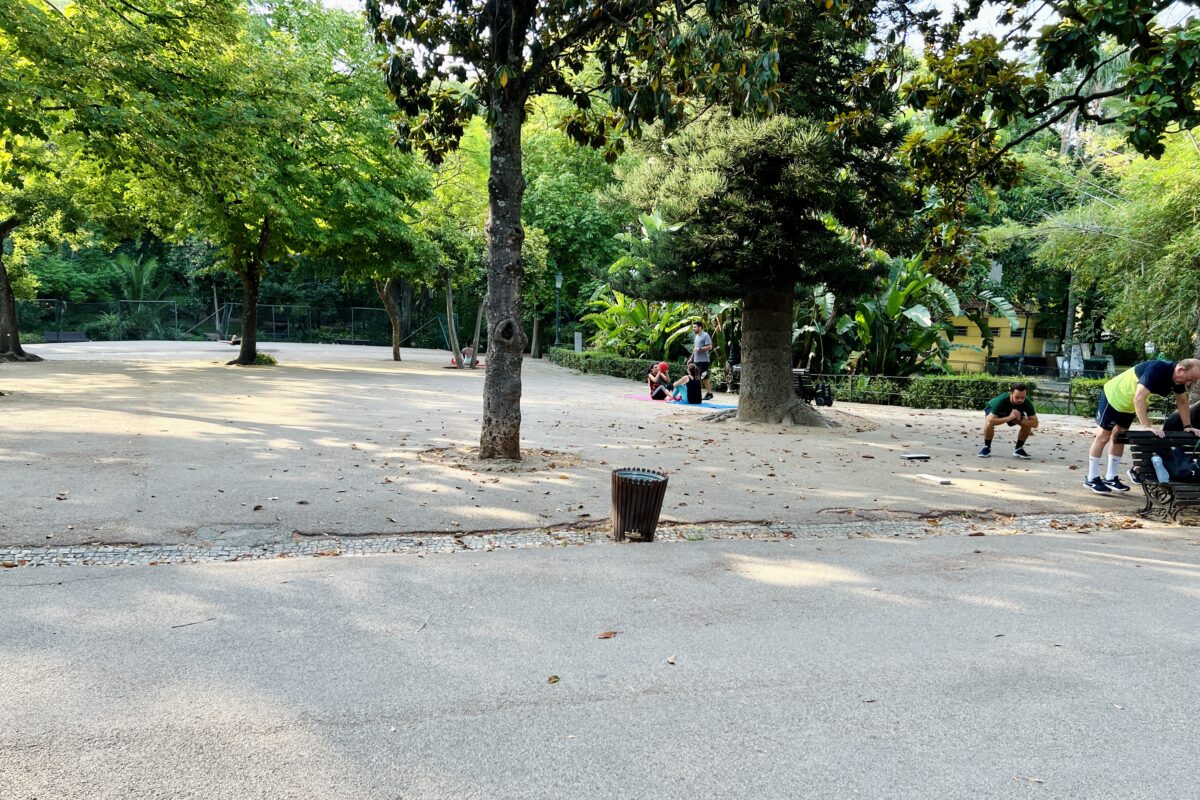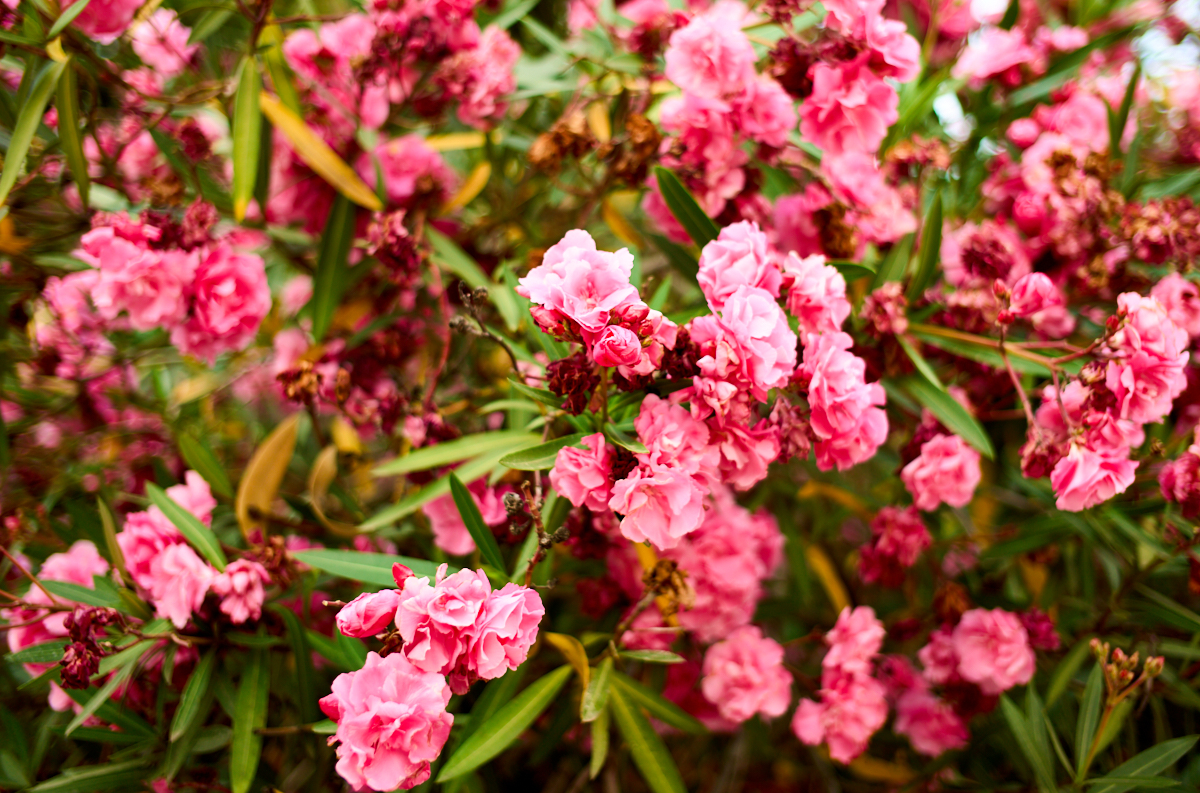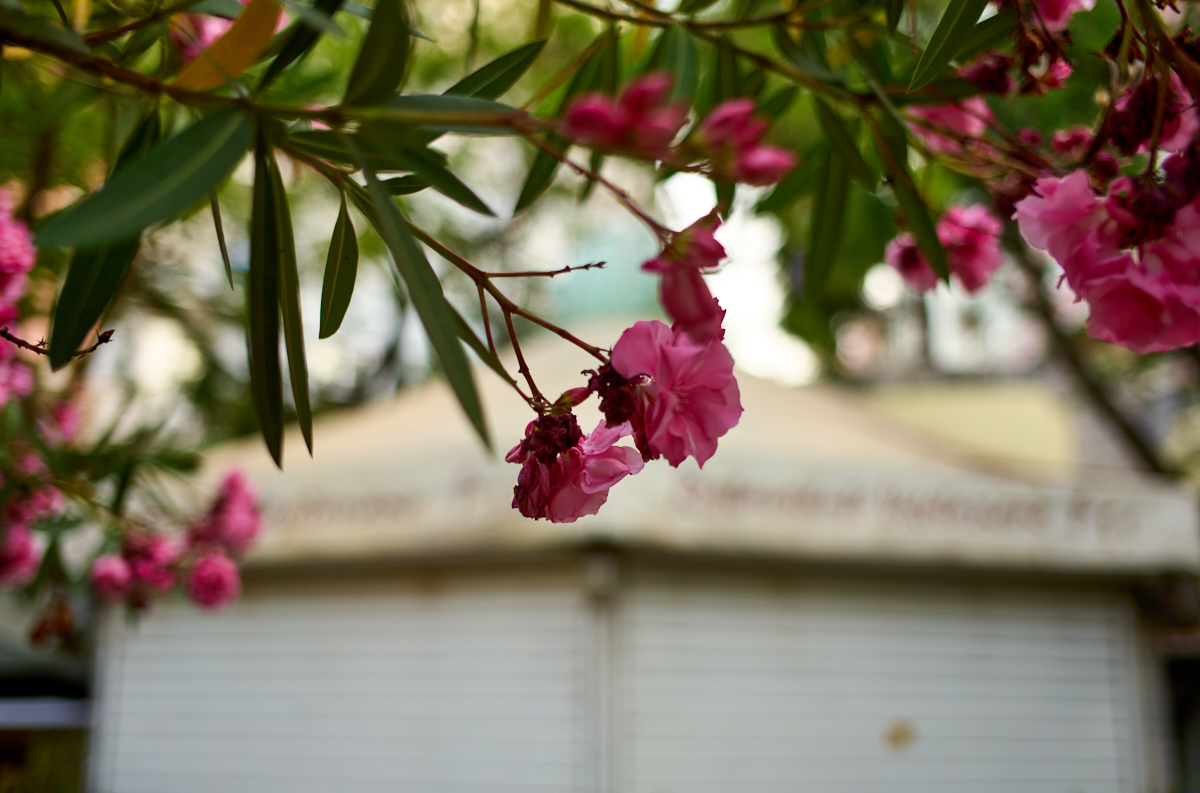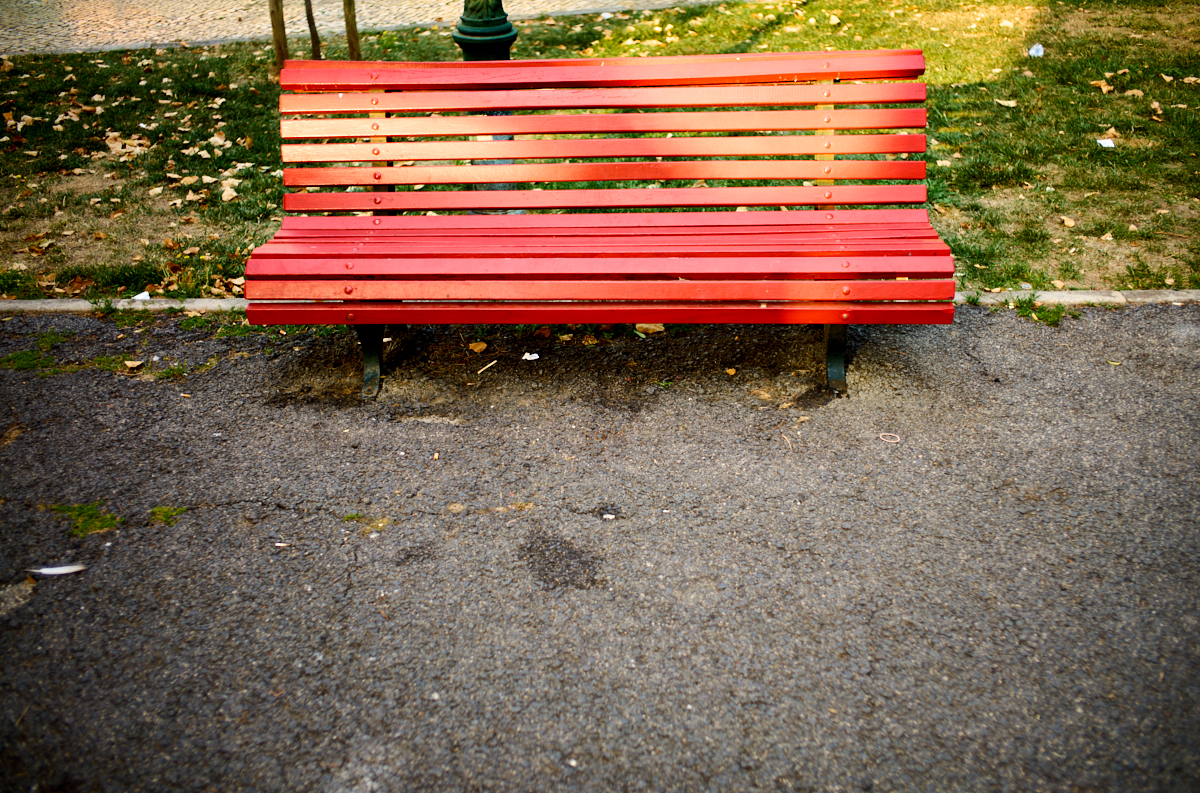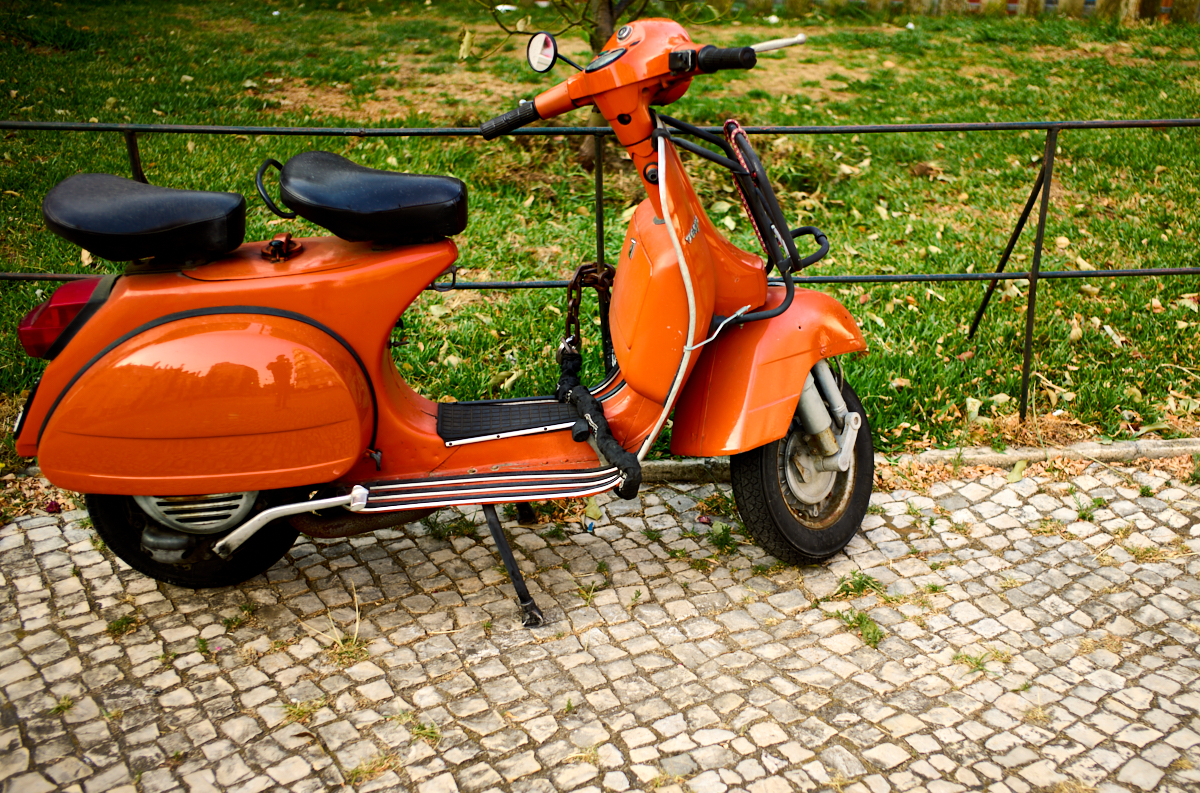02022-07-16 | Lx, Photos, Portugal
Jardim da Estrela–Garden of the Star. Lisboetas really makes use of the many parks and gardens in the city. Early in the morning many people use the park like a giant gym. There are runners, of course, but also lots of yogis on their mats, sometimes alone and often in groups. There are groups of people doing crunches–shared pain is so much more fun–and there are even trainers assisting others who are lifting weights. Jump-rope, stretching, meditation, the parks are full of activity.
One element of every park in Lisbon, large or small, is that there is always at least one concession that sells coffee (of course), drinks (including beer and wine), pastries, and sandwiches. The concession is always surrounded by small tables and chairs. Instead of rushing home after doing yoga with your friends, you might have a coffee and talk. Or, in the evening, you might meet a friend for a beer, followed by a walk.
I imagine such concessions, while adding an attraction to each park, also bring in a nice sum of money that helps with the upkeep of these parks.
02022-07-15 | Lx, Photos, Portugal, Writing
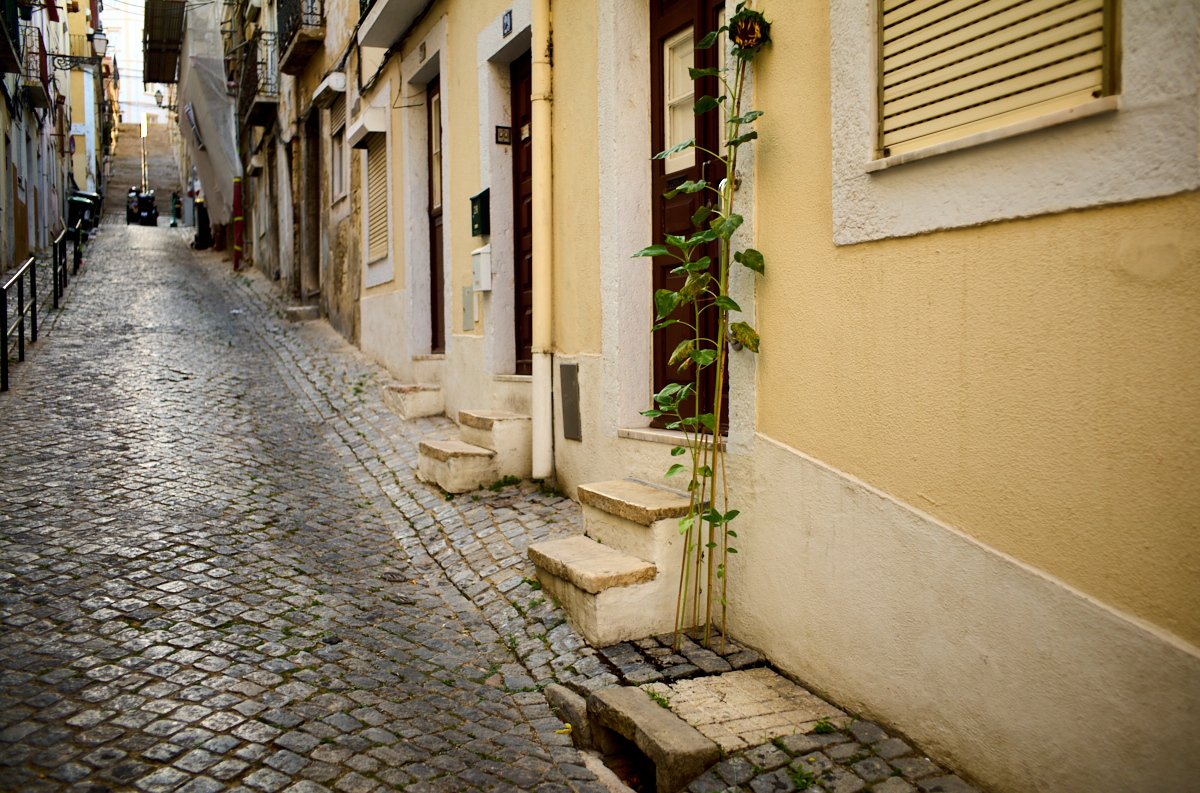
In a narrow cobblestone alley a few sunflowers have sprung up. Were they planted or did they surprise? In any case, they seem well cared for. The flowers are tied to bamboo poles that hold them up. The ground appears to be watered. An older person might be the caretaker of these flowers, judging by the handrail that was installed to help them negotiate the three steps into the house. It’s a simple bathroom handrail, like the ones I installed in my house, when my dad lived there. The handrail is simple and artless, in a beautiful way, making me imagine that an engineer lives here. If the sunflowers were volunteers, they could not have picked a better spot. They look perfect in front of the yellow house. Or perhaps the engineer has a partner who wanted to obscure the practical handrail by planting sunflower seeds and watering them. The gleam of the chromed handrail won’t be quite as obvious if sunflowers grow here, they might have thought.
02022-07-15 | Lx, Photos, Portugal
02022-07-14 | Lx, Photos, Portugal
02022-07-13 | Lx, Photos, Portugal, Writing
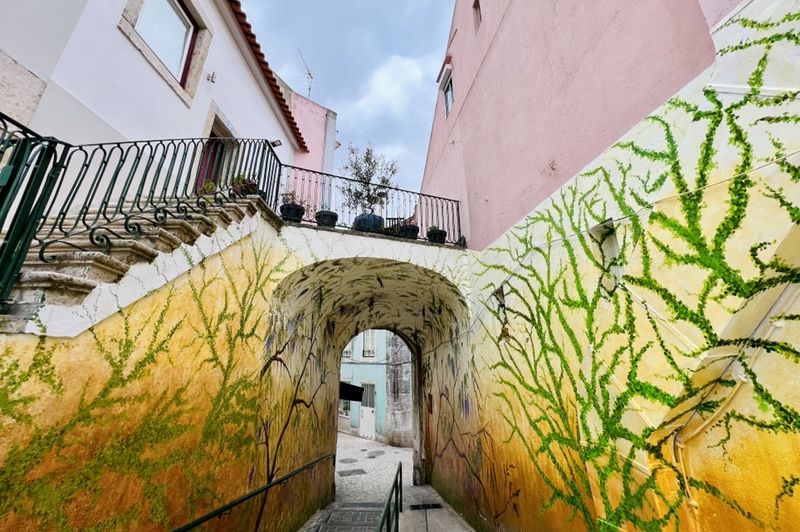
We want a terrace. Sure, don’t we all want a terrace! Yeah, but how about we build one between our two houses? That’s a pretty good idea. Will it have access from both houses? Nope, only from our house. Then how do I use the terrace? You basically don’t, but we could add stairs to the terrace that you could sometimes use. Great, so I can enjoy the view from the terrace as well. Can we have dinner on the terrace? Well, here is the thing. I am willing to add the stairs, but I will also add a gate… so you won’t be able to go to the terrace any time you want. You want that I ask you every time I want to use the terrace. Yeah, I do. It really doesn’t sound like a great deal for me. You get a terrace and what do we get? Well, how about I pay you to paint the underpass underneath the terrace? You can paint it any way you want. You are not going to tell me what to do? No. Paint anything you like. You are paying for the building of the terrace and you will pay me to paint it. No, only underneath the terrace. But there you can paint anything you like. Let me think about this.
02022-07-13 | Coffee, Portugal
“Empurre ou puxe” — which one of those words means push and which one pull? I have noticed a lot of confusion around these two words, especially since “puxe” is pronounced “push-eh”. As you might have guessed “empurre” means push and “puxe” means pull. So, if you stand in front of a door that you are trying to push open and a Portuguese person behind you helpfully says “puxe”, don’t push even harder because they are actually telling you to pull.
The Portuguese have a couple of extra snack meals, which will suit some people I know. :-) There’s one in the late morning, called “lanche da manhã” and one in mid afternoon, “lanche da tarde”. Each meal is usually accompanied by coffee. People drink a lot of coffee here and it is almost always espresso. In Lisbon a café, or espresso, is also called “bica”. Some people think that bica could be an acronym for “Beba Isto Com Açucar” – drink this with sugar – but I don’t believe it. I also learned that in Porto the same coffee is called “cimbalino”. Interestingly bica is feminine while cimbalino is masculine.
“Bico” (masculine) means spout. An espresso machine has little spouts out of which the coffee flows. That could be the origin of “Bica”? That which comes out of the coffee spout…
